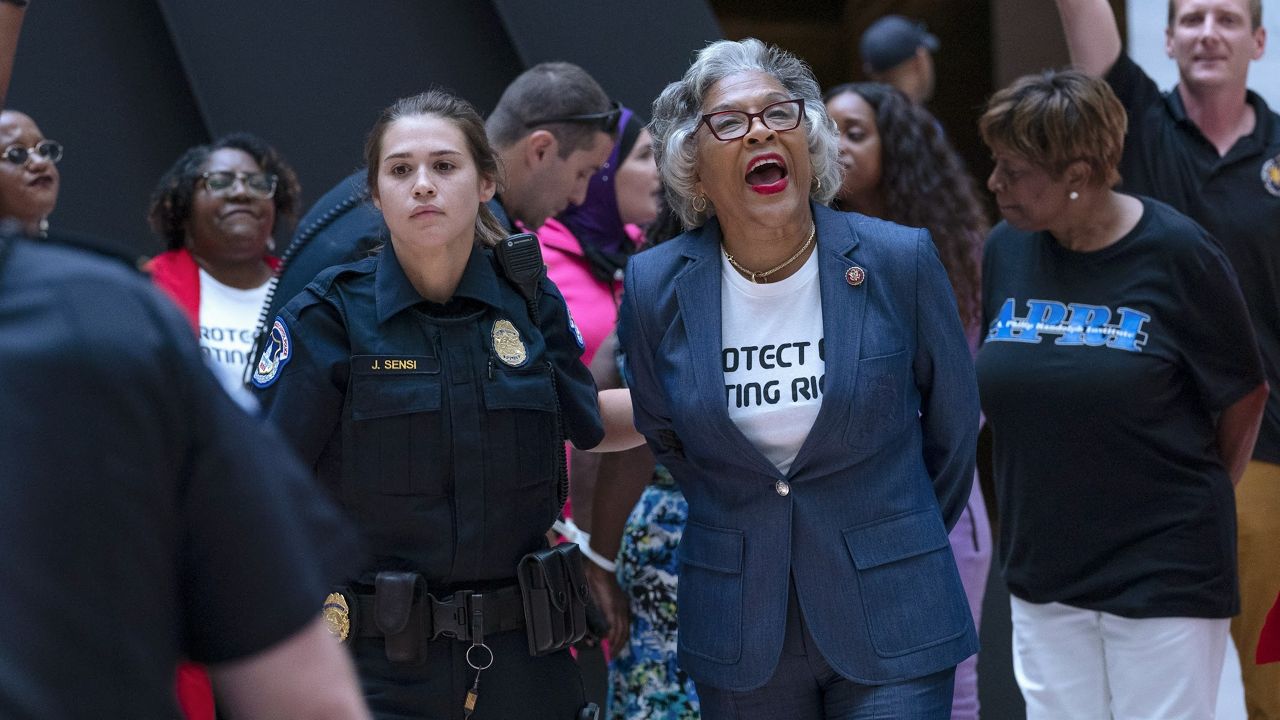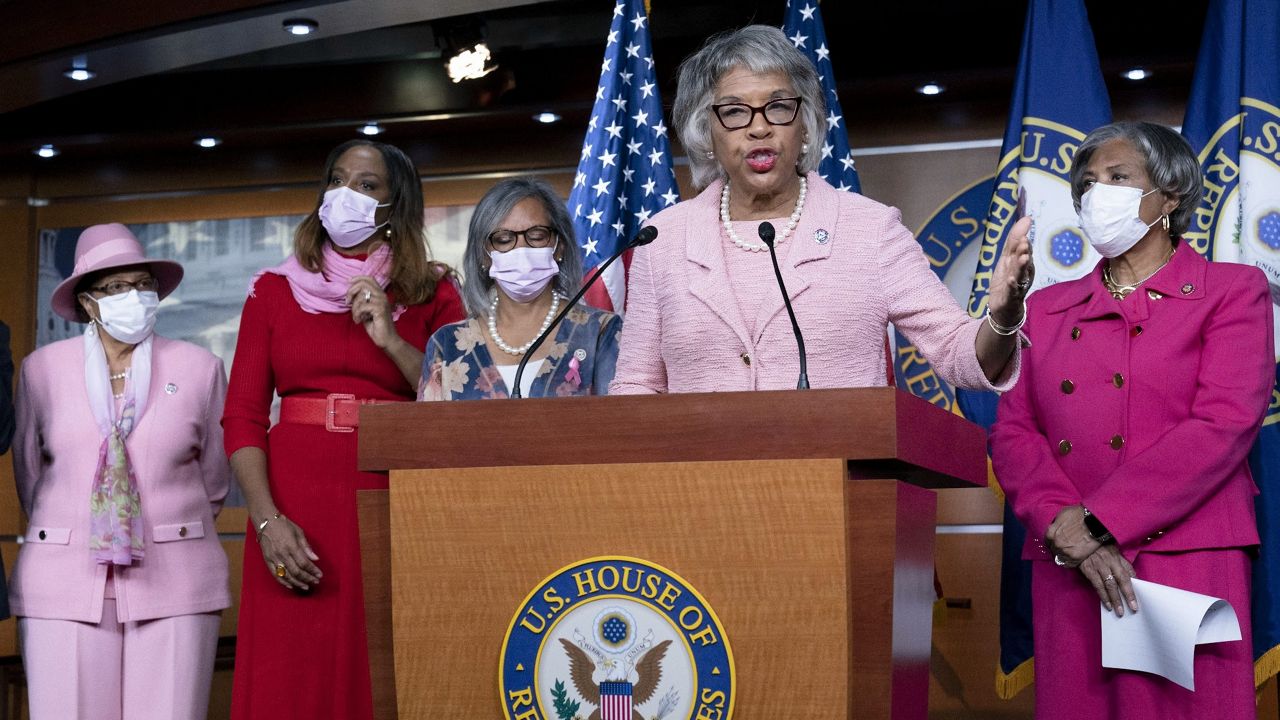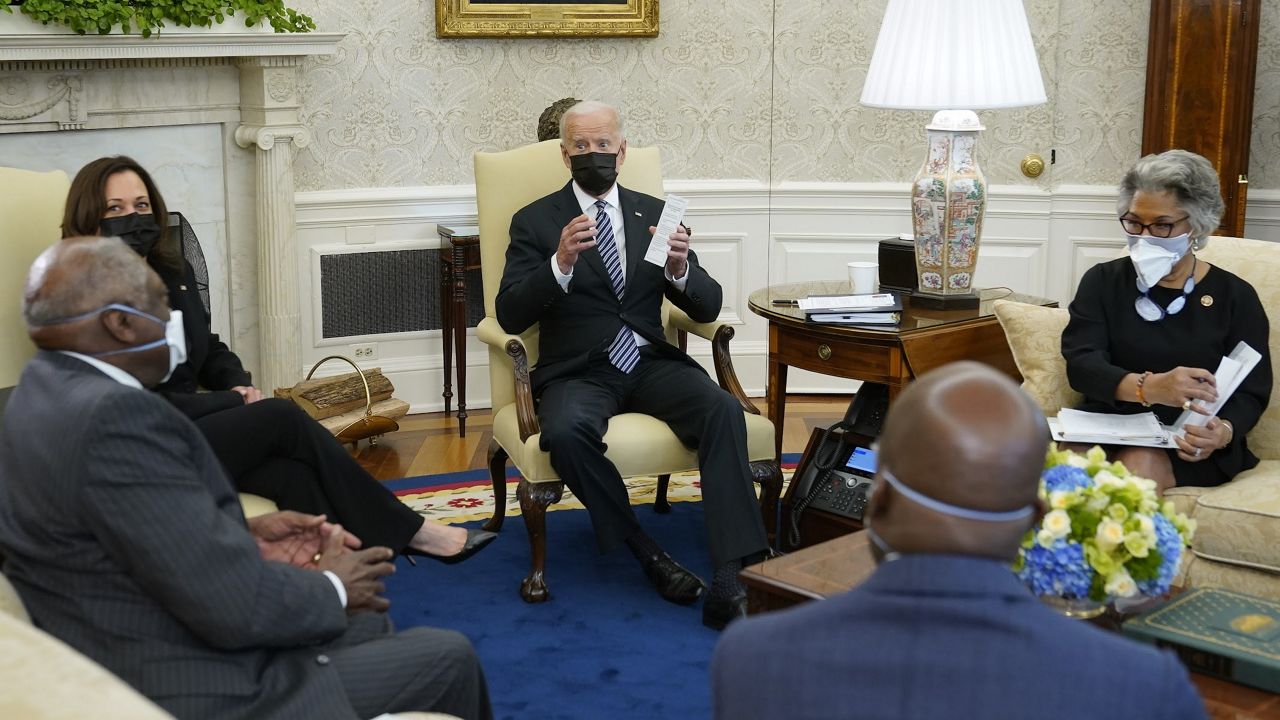WASHINGTON, D.C. — Rep. Joyce Beatty started her job as chair of the Congressional Black Caucus in Jan. 2021, just months after the worldwide protests over George Floyd’s murder by police in Minneapolis.
What You Need To Know
- Ohio Rep. Joyce Beatty spoke exclusively with Spectrum News about the completion of her two-year term as chair of the influential Congressional Black Caucus
- During her tenure, Beatty tried to tackle everything from policing reform and voting rights to making Juneteenth a federal holiday and getting historically Black colleges and universities additional funding
- In the extensive interview, Beatty discussed working with Republicans, her relationship with President Joe Biden, and more
Last month, days after her two-year term ended, Tyre Nichols died at the hands of police in Memphis.
Beatty watched in horror as yet another video showed a Black man’s life ending because of police brutality. She said she played the video a second time, closing her eyes to listen to the gut-wrenching audio.
“We cannot continue to have law enforcement do what we witnessed on that video. I mean, it’s absurd,” Beatty told Spectrum News.
On Jan. 31, the Columbus-area Democrat sat down for an exclusive interview in her Capitol Hill office to reflect on her time leading the CBC, a group of almost 60 members between the U.S. House and Senate that has become known as the “conscience of Congress” since it was formed in 1971.
The tough challenge of policing reform
As vice chair of the caucus, Beatty got pepper-sprayed at a May 2020 George Floyd protest in downtown Columbus. Three months later, she spoke at the 57th annual March on Washington alongside Dr. Martin Luther King, Jr.’s family to call for the federal government to respond to Black men dying from interactions with law enforcement.

When Beatty became chair in Jan. 2021, how to reform policing quickly became a top agenda item.
House Democrats had passed the George Floyd Justice in Policing Act in 2020, but it stalled in the Republican-controlled Senate.
With Beatty now in charge, Democrats passed the bill again in March 2021. She was a central figure in negotiations with the evenly divided Senate, but a deal was never reached and the bill stalled again.
South Carolina Sen. Tim Scott, a Black Republican who was the lead negotiator for his party, said in a statement “After months of making progress, I am deeply disappointed that Democrats have once again squandered a crucial opportunity to implement meaningful reform.”
To this day, Beatty feels differently.
“I think the Republican senators failed. I think they walked away from the table,” she told Spectrum News. “They did not come back and dissect our plan. They did not talk to those of us, the Congressional Black Caucus, leading this. And I think we could have gotten to a better place if they had not made it political.”
The killing of Tyre Nichols this year has renewed calls by Democrats for the George Floyd bill to become law. But Republicans now control the House and the Senate remains too closely divided to reach the 60 votes needed.
Beatty said the video of Nichols being beaten while handcuffed is reason enough to keep trying, though.
“Now, can you say 100% that any piece of legislation would stop what happened? Probably not. But what you can say is that there are consequences,” she said. “What you can say is there is a law out there that deals with abusive force. That was abusive force.”
The push for voting rights
Beatty faced similar roadblocks in getting voting rights legislation passed.
In July 2021, she was arrested for protesting inside a Senate office building as part of a push by Democrats to have senators take up the John Lewis Voting Rights Act. The House passed multiple versions of it, but like policing reform, it stalled in the Senate.

“Disappointing to me? Yes. Sorry or regretful for anything I didn’t do? Absolutely not,” Beatty said.
Recent CBC accomplishments
Under her watch as chair, Beatty secured some notable victories.
Legislation to make lynching a federal crime became law, as did a resolution to make Juneteenth a federal holiday.
Beatty testified in favor of the Senate confirming Judge Ketanji Brown Jackson to the Supreme Court, the first Black woman in history.
Additionally, Congress approved millions of dollars in funding for historically Black colleges and universities, and Beatty played a key role in getting the bipartisan infrastructure bill through the House.
Beatty became CBC chair right as the Capitol was attacked on Jan. 6, 2021. The images from that day included rioters carrying confederate flags inside the Capitol. Spectrum News asked Beatty how it affected her approach to the job.
“I think it made me feel the urgency of now… I play it back over and over in my mind,” she said. “But I think, at the end of that day, when we walked back through the halls and we went back to the floor, I made a commitment with self that I’d fight harder for our democracy.”
The past, present and future of the CBC
Beatty had a book made marking the 50th anniversary of the caucus and its storied history.
It’s a sprawling yearbook of sorts, showing how the group has grown in prominence and played a direct role in getting the first Black vice president elected, the first Black congressional leader in place, and the first Black woman on the high court. Beatty said she’s also proud that several CBC members chair prominent committees in the House.
When asked what her proudest accomplishment was during her time as chair, Beatty said it was the fact that the caucus remained united.

“And so when you think of being able to walk on the floor and look at your members and have the trust and say, ‘I need everyone to vote yes.’ And they do it. That’s the biggest moment,” she said.
The CBC has only been chaired by Democrats, and the caucus currently has no Republican members.
Of the 12 Black Republicans who have ever served in the House, only four have joined the caucus—the last being former Utah Rep. Mia Love, who left office in 2019.
In 2021, Florida Rep. Byron Donalds made headlines for alleging he was blocked from joining the group. Beatty denies it and said he never formally applied.
Spectrum News asked Beatty if she feels the caucus would benefit from restarting its relationship with Republicans, and whether she thinks the group struggles with that right now.
“First of all, I don’t think it was a struggle,” Beatty said. “I don’t think there’s anything to rebuild. I think we’ve always had a relationship for those who wanted to be in membership.”
Ohio’s role in the CBC
Beatty is the third Ohio Democrat to lead the CBC, following in the footsteps of Marcia Fudge, a former U.S. representative and current Secretary of Housing and Urban Development, and the late congressional representative Louis Stokes.
There could be others down the road. Rep. Shontel Brown (OH-11) and Rep. Emilia Sykes (OH-13), both Black women, have gotten elected in the last two years and have become mentees of Beatty.

“I call them and say, ‘Hey, what do you think? How should we maneuver this?’ So I would like to say it’s a team approach, and I might have a little bit of edge,” Beatty said with a smile.
President Joe Biden’s relationship with the CBC
Beatty came into her role as chair with high expectations of President Joe Biden, who was elected in 2020, thanks in no small part to Black voters.
She believes she brought the most CBC members in history to the White House for meetings with the president, and that he followed through.
“I think that he met the expectations that we expected that he could do as president. We didn’t expect him to give us every single thing. No one does,” Beatty said.

She said she has confidence that the new caucus chair, Rep. Steven Horsford of Nevada, will pick up where she left off. He’s already held a meeting with Biden to discuss policing reform.
Beatty said her time as chair reinforced to her the value of dealmaking and having a seat at the table, in addition to activism.
“Sometimes it’s not walking out. Sometimes it’s not marching. Sometimes it’s not getting arrested. But I’m not beyond any of those things,” Beatty said.



